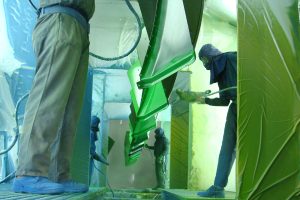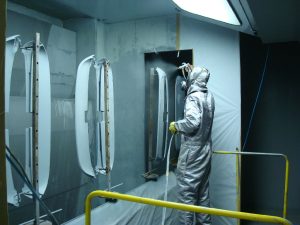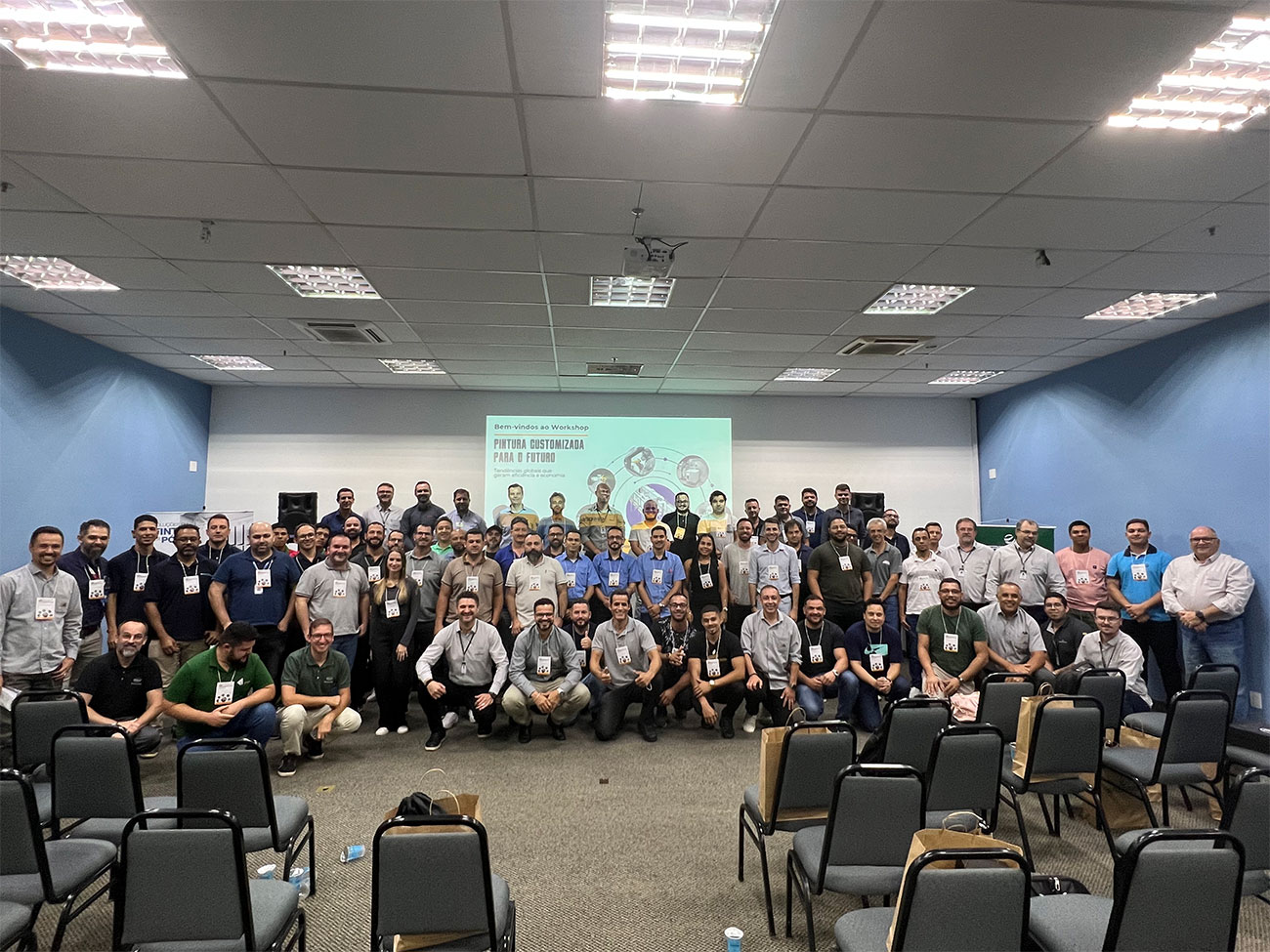If you have liquid paint equipment in your factory, you may already be familiar with the acronym VOC or CVO. They refer to volatile organic compounds, polluting substances that originate from the solvents used to dissolve liquid paint.
If you, like many people, face problems with these pollutants from the painting process, then this post is dedicated to you.
Here are some tips for reducing the VOCs that, in paint application processes, are released into the atmosphere through paint booth chimneys.
1 – Efficient paint application (reduced overspray)
If you’re already a regular reader, you’ve probably come across one of our articles on efficient paint application. Efficient paint application not only saves the company money, but also reduces VOCs from overspray.
Overspray is all the paint that comes out of the applicator that has not adhered to the part. This unadhered paint is sucked up by the paint booth’s exhaust system and is retained in the filters and post-filters.
At this point it is important to note that the filters in liquid paint application booths are designed to retain solid particulates, not organic volatiles.
Therefore, the higher the volume of over spray generated in an application, the higher the rate of VOCs generated.

2 – Use of paints with low solvent content
Environmentally friendly paints with a low solvent content are a great option for those who want to reduce VOC levels in the painting process. In today’s market, you can find environmentally friendly paints that are not only water-based, but also do not contain heavy metals in their pigmentation.
It is always important to contact your paint supplier and check what options they offer for VOC-free or low VOC paint.
This tip isn’t just for large companies with high productivity, but for all businesses, as the use of eco-friendly paints reduces the emission of pollutants into the environment and the risks to human health.
3 – Balancing the exhaust system
As mentioned above, the exhaust system is a fundamental part of the paint booth. Exhaust is provided by a fan assembly, usually made up of a rotor and motor, driven directly or indirectly (with drive belts), which must be part of the preventive maintenance plan to ensure that the equipment functions correctly.
Below, we list some maintenance procedures to be carried out on the exhaust system of paint booths.
- Balance the ventilation assembly if it is unbalanced due to paint build-up around it. Risk of jamming due to bearing breakage
- Clean the system due to paint buildup
- Lubricating radial fan bearings
- Checking belt alignment on radial fans
4 – Use of adsorbent materials
Some adsorbent materials help to reduce organic volatiles. These absorbent materials with high porosity retain the VOC particles through binding forces in chemical processes.
Some of these adsorbent materials are:
- Active carbon;
- Active aluminum oxide;
- Silicagel;
- Polymer resin

5 – Use of a gas scrubber
Some volatiles have the rare property of reacting chemically with water, allowing the use of gas scrubbers.
These scrubbers have a system of nozzles responsible for spraying liquids, forming a fan through which the gases will pass and be diluted in the system.
6 – Use of Incinerators
Incinerators or RTOs are pieces of equipment that work by combining various processes, enabling the best possible performance in terms of caring for the environment.
The enthalpy wheel, for example, has the function of removing and retaining VOCs from a large volume of air (normally required in paint booths) containing moderate (but not permitted) levels of VOCs, and transports these VOCs to a low volume of air, leaving a high concentration of VOCs in this volume, in order to allow the use of incineration.
Incineration burns these volatile organic compounds before they are released into the environment. However, it is important to remember that incineration processes, although they eliminate VOCs, have a high energy consumption, which must be taken into account when purchasing and maintaining this type of equipment.
Where do I start?
There is no doubt that working with primary VOC reduction measures is the best solution: having a project that is well dimensioned and designed to meet the requirements of atmospheric emissions and occupational criteria, without compromising operating costs and the quality of the products processed.
It’s important to be careful when selecting your chemical and paint supplier from among those that best meet the standards in your region.
There is a need for conscious and responsible consumption of dangerous products that are potentially harmful to human health.
ERZINGER has project solutions in the most diverse market segments to safely meet environmental and occupational requirements.
Did you like these tips? Do you want to put them into practice?
Contact our Technical Assistance team to receive more precise guidance for your process
E-mail: at@erzinger.com.br
Phone: +55 (47) 3801-9199
WhatsApp: +55 (47) 99159-6358





